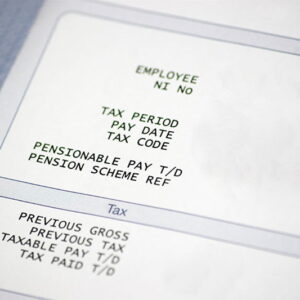Should I Buy an Annuity in 2023?

This content is for information purposes only and should not be taken as financial advice. Every effort has been made to ensure the information is correct and up-to-date at the time of writing. For personalised and regulated advice regarding your situation, please consult an independent financial adviser here at Smith & Pinching in Norwich, Lowestoft and Eaton. The Financial Conduct Authority does not regulate taxation advice, estate planning or inheritance tax planning.
How will you generate your income in retirement? With pensions, there are two main options – income drawdown and annuities. Yet how do they work and which option is best for you?
Below, our Norwich financial planners here at Smith & Pinching explain how these two approaches compare, the pros and cons of each and how they can be integrated into a wider retirement plan. We also explore why annuities are becoming a more popular option in 2023.
We hope this content is helpful. If you want to discuss your financial plan with us, please get in touch to arrange a no-obligation financial consultation, at our expense:
01603 789966
Income drawdown and annuities – how do they compare?
The UK’s pension rules have changed a lot over the past decades and can be quite complex. For simplicity, try to think of the two main pension options – income drawdown and annuities – almost like living off your savings, or living off a kind of retirement “salary”, respectively.
More specifically, income drawdown refers to when someone chooses to keep the money in their pension(s) invested – also gradually making withdrawals to fund their retirement lifestyle.
Conversely, an annuity is a type of financial product which someone can buy using their pension money. This product then provides a continuous income throughout retirement, with some annuities carrying on indefinitely until your death.
One of the primary differences between these two options is income fluctuation. With income drawdown, the value of the investments in your pension may go up and down with market volatility.
When your investments are performing well, you may be able to justify withdrawing more from your pension. However, in harsh market conditions, you might need to reduce the value of your withdrawals.
With an annuity, the income is more predictable. You know exactly how much income you will receive in exchange for the payment from your pension. However, the income may be lower than income drawdown and you cannot adjust it.
Why are annuities rising in popularity in 2023?
New annuity products may offer a lower or higher income compared to older ones depending on various factors. In particular, annuities are very sensitive to interest rates. When the latter goes up, annuities tend to offer better “rates” (incomes) to customers.
This is largely because annuities are typically sold by insurance companies which take the pension money they receive and invest them into “safe” assets like UK government bonds (gilts). The yields from these investments tend to go up when interest rates rise – which they have steadily been doing in the UK since late 2021.
The higher profits from these bond yields can then be passed down to new customers in the form of better annuity rates. This has happened in 2023. Twelve months ago, the average annuity offered £5,691. Today, it has risen by £1,091 to £6,782.
These better rates are a bit reason why annuity sales are on the rise – surging by 22% in the first quarter of 2023. However, before rushing to buy one, consider the pros and cons of both income drawdown and annuities – ideally with the help of a financial planner.
Should I buy an annuity in 2023?
Whilst annuities are offering some of the best deals in 14 years, they are not right for everyone. Your financial goals, circumstances and attitude to investment risk will play a key role in determining whether annuities are a suitable fit for you – or, income drawdown (or both!).
Firstly, you should ask yourself how long you might live. Whilst this may be morbid to think about, your lifespan will affect whether an annuity purchase will “pay for itself” in the long run.
For example, suppose you buy an annuity with £100,000 from your pension to provide £5,000 fixed annual income, indefinitely. Setting aside inflation, this means it would take 20 years for the annuity to start paying itself back.
Secondly, consider which type of annuity might be suitable for you. There are many different types to try and cater to the different needs of people in retirement. They each have pros and cons.
For instance, a “level” annuity will often provide a higher initial income compared to other types. However, as inflation rises over the years ahead, the value of this annuity income will gradually start to fall.
By comparison, an “inflation-linked” annuity will steadily increase in line with an official inflation measure such as the CPI (Consumer Price Index). This helps to protect the value of your income as the cost of goods and services rise in the economy. However, these annuities are often more expensive to account for this benefit.
Thirdly, think about your plans for your estate. What do you want to happen to your pension money when you die? With income drawdown, you can pass down all of your pension savings to beneficiaries without inheritance tax (IHT). Annuities are more limited in this respect.
One option is to consider adding “value protection” to an annuity. When you die, the insurance company will pay a lump sum equivalent to the value you protected (e.g. 50%). This could then be passed down to your beneficiaries when your estate is administered in the future.
Conclusion & invitation
If you are interested in discussing your own financial plan or investment strategy with us, please get in touch to arrange a no-commitment financial consultation at no cost to you:
01603 789966








